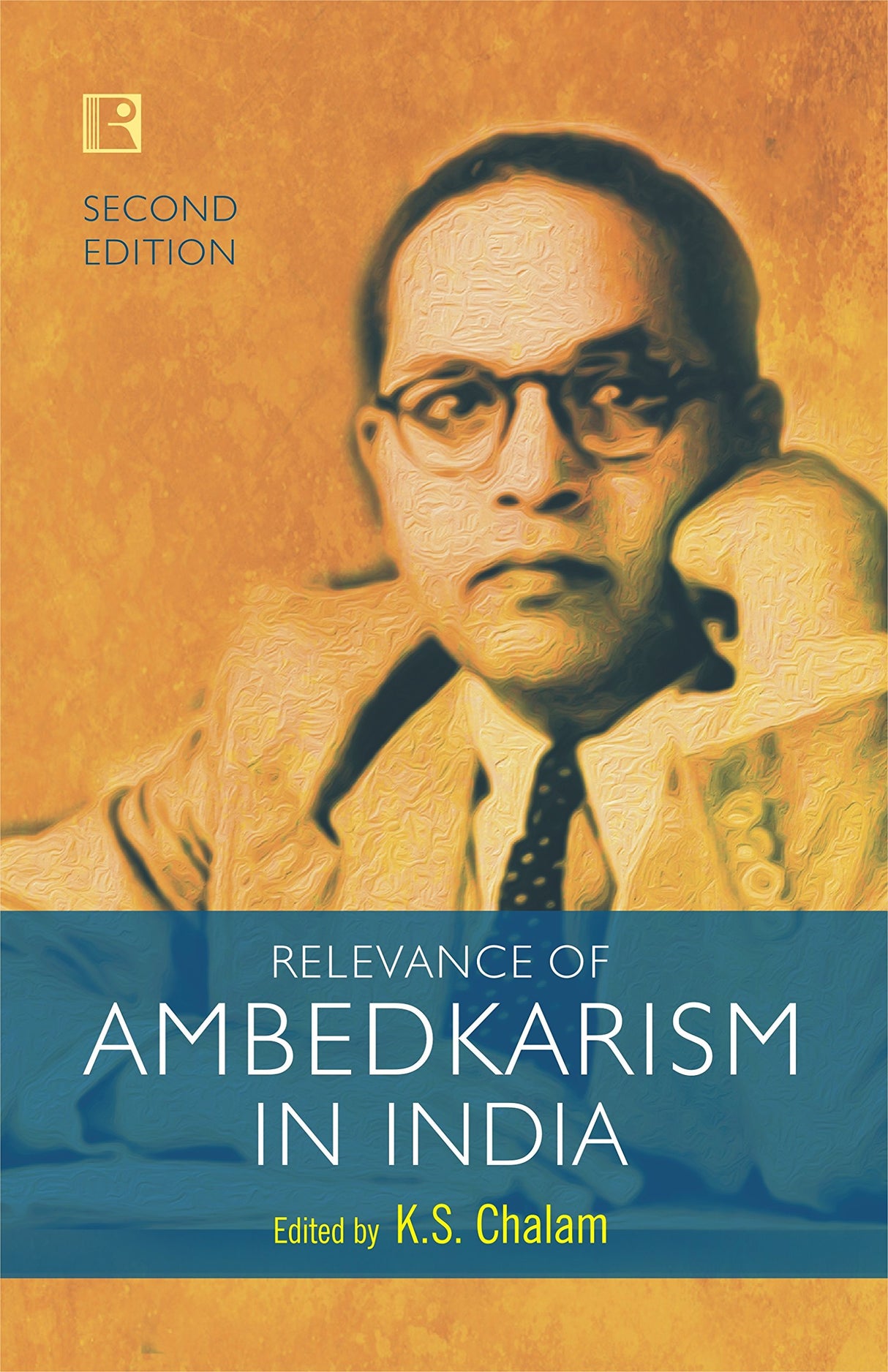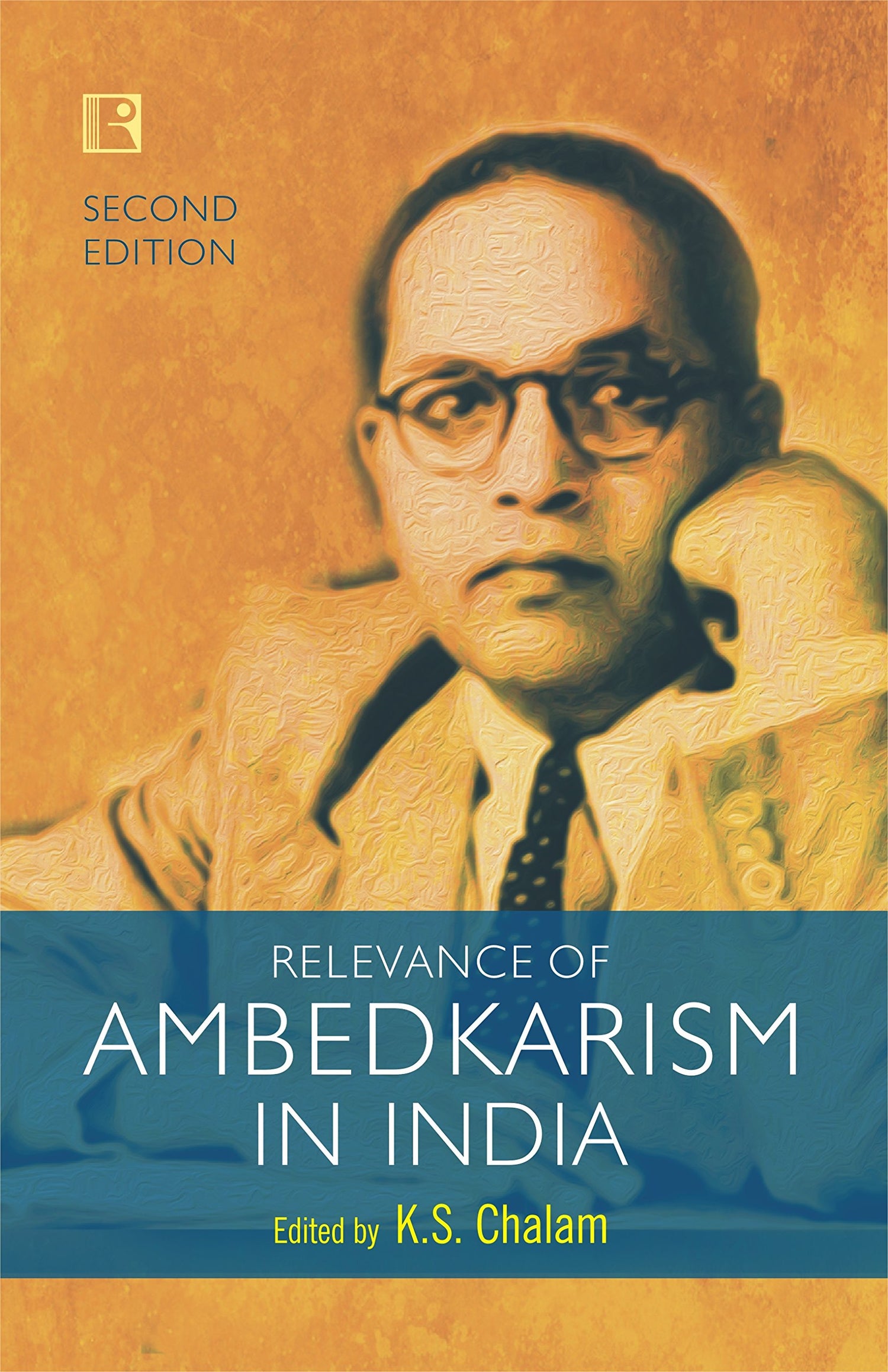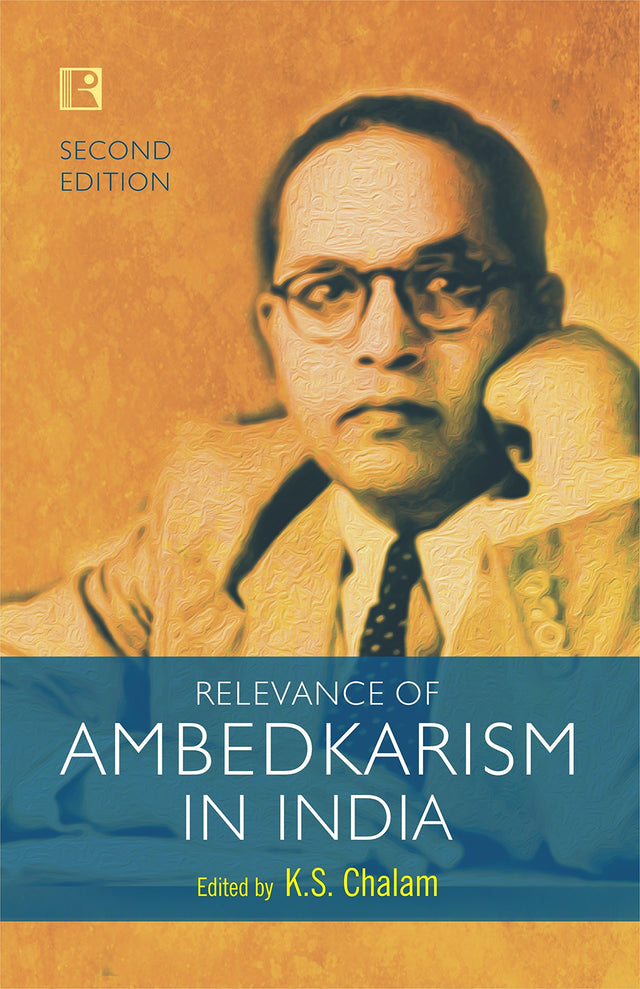Relevance Of Ambedkarism In India
Relevance Of Ambedkarism In India is backordered and will ship as soon as it is back in stock.
Couldn't load pickup availability
Genuine Products Guarantee
Genuine Products Guarantee
We guarantee 100% genuine products, and if proven otherwise, we will compensate you with 10 times the product's cost.
Delivery and Shipping
Delivery and Shipping
Products are generally ready for dispatch within 1 day and typically reach you in 3 to 5 days.
Book Details
-
Publisher: Rawat Publications
-
Author: K.S. Chalam
-
Language: English
-
Edition: Second Edition
-
ISBN: 9788131609569
-
Pages: 296
-
Cover: Hardcover
-
Release Date: 01-02-2018
-
Package Dimensions: 8.7 x 5.8 x 0.9 inches
About the Book
Relevance of Ambedkarism in India explores the ideology of Ambedkarism, particularly in relation to the Bahujan masses in India. The book originated from a national seminar held in 1991, where the contributions of Dr. B.R. Ambedkar were discussed in depth, and his thoughts were recognized as a potential force for social liberation. This second edition of the book contains 26 papers organized into four sections that delve into Ambedkar’s philosophy, socio-economic ideas, contributions to the Indian Constitution, and perspectives for future research. Key figures such as Justice V.R. Krishna Iyer, A.M. Rajasekhariah, Sharad Patil, and others have contributed to the discussions surrounding Ambedkarism.
The book provides an in-depth look into Ambedkar’s socio-political thought, the relevance of his ideas on social justice, his critique of the caste system, and his vision for education and economic development. With the addition of new material reflecting the growth and impact of Ambedkarism over the last twenty-five years, this book offers valuable insights into Ambedkar’s lasting legacy in India’s modern socio-political landscape.
Contents
-
The Relevance of Ambedkarism in India Today
Part I: Ambedkar as Philosopher and Theoretician -
Philosophy of Ambedkar: Some Observations
-
Ambedkar as a Philosopher and a Theoretician: An Evaluation
-
The Post-Ambedkar Indian Experience
-
Ambedkar and Marxism: A Critical Examination of the Case for Synthesis
-
The Buddhist Ambedkar
-
Buddhism, Secularism and Ambedkar
-
Democratisation of Higher Education in India: Ambedkar’s Vision
-
Educational Philosophy of Ambedkar
-
Ambedkar’s Life: A Search for Social Justice
-
The Socio-Political Philosophy of Ambedkar
-
Ambedkar as a Theoretician and Policy-Maker
Part II: Socio-Economic Ideas of Ambedkar and their Relevance
13. Development Philosophy of Dr. B.R. Ambedkar
14. Socio-Economic Ideas of Ambedkar and their Relevance
15. Ambedkar on Economic Development and Social Justice
16. Ambedkar’s Views on Small Holdings in India
17. Ambedkar and Democratic Socialism in India
18. Caste and Patriarchy: Ambedkar’s Insight into the Status of Indian Women
19. Ambedkar’s Views on the Indian Caste System
Part III: Ambedkar as Constitution-maker and Institutions Breaker
20. Ambedkar: A Creative Iconoclast
21. Ambedkar: An Architect of Indian Constitution
22. Sixty-Five Years of Indian Constitution: A Prolegomenon of Social Justice
23. Ambedkar’s Contribution to the Demolition of Tradition in India
24. Practicability of Ambedkar’s Views on Annihilation of Caste
25. Sudras in the Vedas: A Critical Exposition by Ambedkar
Part IV: Perspectives of Research on Ambedkar
26. Perspectives of Research on Ambedkar’s Socio-Economic Philosophy
27. Post-Ambedkar Scheduled Castes Agitations in Andhra Pradesh: A Critical Evaluation
About the Author
K.S. Chalam is an eminent economist, academic, and commentator on the political and social economy of India. He served as Vice-Chancellor of Dravidian University and has held various prominent positions, including as a Member of the Union Public Service Commission, New Delhi. Chalam is the author of over 25 books and more than 100 research papers. His work focuses on the economic and social challenges facing India, with a special emphasis on Dr. B.R. Ambedkar’s ideas. He is also the Chairman of the Institute for Economic and Social Justice in Visakhapatnam.





